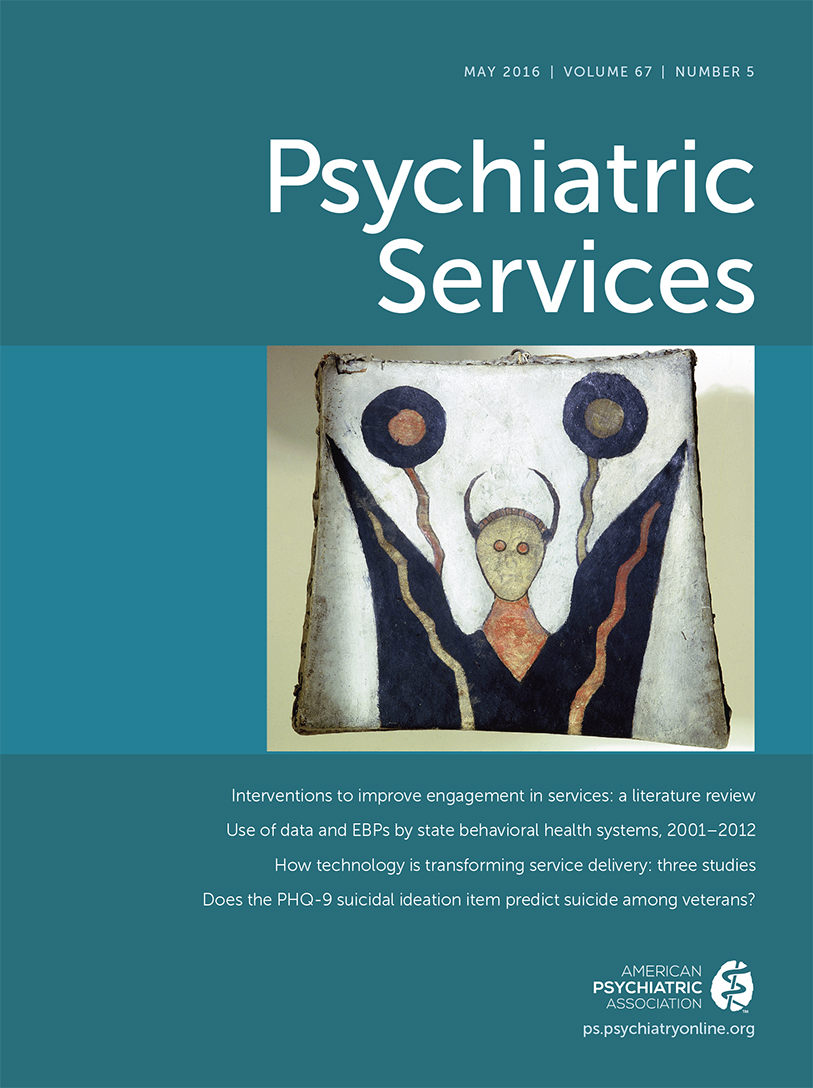Is the NHS Mental Health Service Preparing Clients to Resume Employment?
TO THE EDITOR: In the U.K. population, mental disorders account for 47% of long-term sickness or absence from the workplace (1). The care program approach in the National Health Service (NHS) mental health service emphasizes a holistic approach that includes understanding the contribution of unemployment to mental illness (2). Supporting clients should involve advice about when to resume work if they are on leave, when to seek work if they are unemployed, and occupational impairments associated with a mental disorder. Support is particularly useful for clients taking psychiatric medication because of side effects relevant to workplace functioning. Daily error diaries from employees have shown that selective serotonin reuptake inhibitors can lower logical and semantic processing, recognition memory, and reaction times (3). Employees taking benzodiazepines can be accident prone (3), limiting employment that involves driving and machine operation. This study examined the extent to which the philosophy of supporting clients resuming employment is put into practice in the NHS mental health service.
This study examined cross-sectional survey data from 3,329 adult clients of the NHS mental health service. All expressed interest in employment support. Data were extracted from a Care Quality Commission survey. Between-subjects univariate analyses of variance examined the association between medication status and receiving return-to-work support, controlling for recency and duration of contact with the NHS mental health service. Most clients (87%, N=2,831) were receiving psychiatric medication; therefore, each analysis was replicated in a subsample of 400 randomly selected clients (200 receiving and 200 not receiving medication).
Provision of return-to-work support was low (44% did not receive it, N=1,470), even though 40% of clients (N=1,263) had used the mental health service for one to five years, 14% (N=440) for six to ten years, and 29% (N=925) for more than ten years. Most (57%, N=1,863) had contact with the service in the past month.
Clients taking psychiatric medication were significantly more likely than those who were not to receive return-to-work support irrespective of service contact recency (F=11.49, df=1 and 3,174, p=.001, η2=.004; replicated in the random sample, F=5.52, df=4 and 376, p=.019, η2=.014) or duration (F=37.87, df=1 and 3,096, p<.001, η2=.012; replicated in the random sample, F=10.05, df=1 and 361, p=.001, η2=.029). Receipt of return-to-work support was significantly associated with contact recency (F=9.03, df=4 and 3,174, p<.001, η2=.011; replicated in the random sample, F=5.08, df=4 and 376, p=.001, η2=.05).
Many clients resuming employment (44%) did not receive return-to-work support from the NHS mental health service. Clients taking medication received significantly better support, which is important because medication can affect cognitive processing, memory, attention, and perception and cause drowsiness, agitation, confusion, and fatigue (3). Because employment support can benefit all clients, the NHS mental health service should improve provision across the board and provide staff with training in the care program approach. Occupational rehabilitation programs run by psychiatric teams are effective, even with severe disorders (4). Research should examine the provision of employment support for clients with depression because it is the most prevalent mental disorder in the working-age population (1,5) and causes the greatest work-related functional impairment.
1 : Mental Health and Work. Commissioned by the cross government Health Work and Well-being Programme. London, Royal College of Psychiatrists, 2008Google Scholar
2 : Outcomes of care programme approach, dual diagnosis, carer support and psychological therapy inductions. Psychiatric Bulletin 38:172–174, 2014Crossref, Google Scholar
3 : The Scale and Impact of Psychotropic Medication Use by Workers. Prepared by Cardiff University for the Health and Safety Executive. Research report 282. Suffolk, United Kingdom, Health and Safety Executive, 2004. Available at s3.amazonaws.com/zanran_storage/www.hse.gov.uk/ContentPages/6744076.pdfGoogle Scholar
4 : Cognitive training and supported employment for persons with severe mental illness: one-year results from a randomized controlled trial. Schizophrenia Bulletin 31:898–909, 2005Crossref, Medline, Google Scholar
5 : Gains in employment status following antidepressant medication or cognitive therapy for depression. British Journal of Psychiatry 206:332–338, 2015Crossref, Medline, Google Scholar



